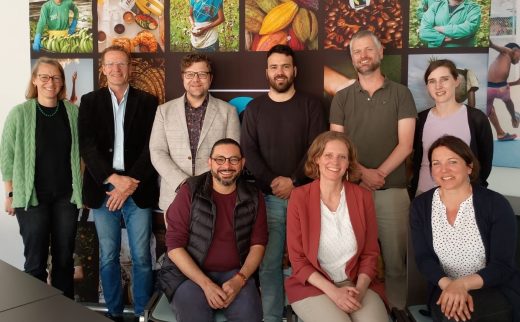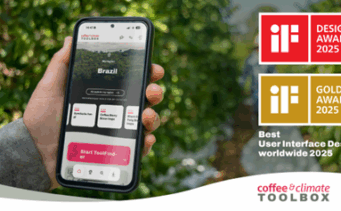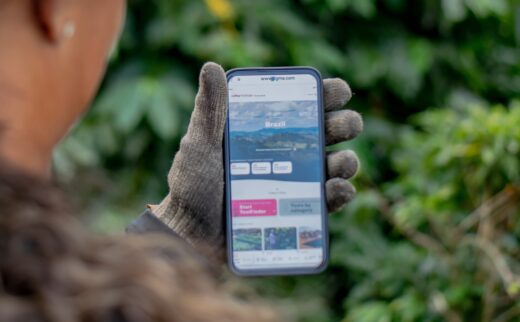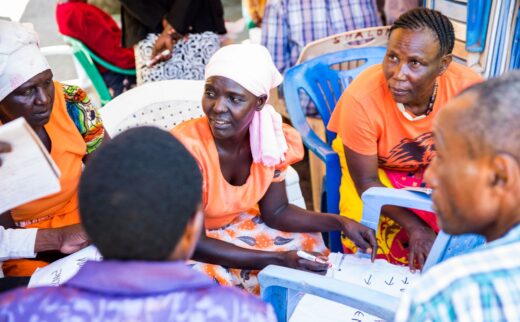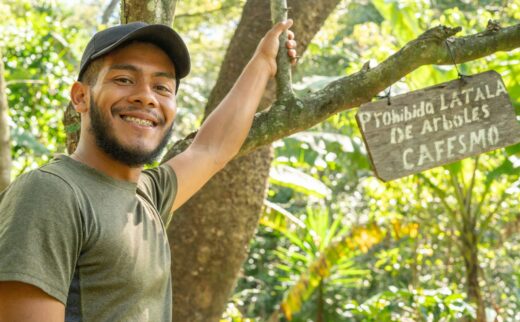A community takes care of its own water supply
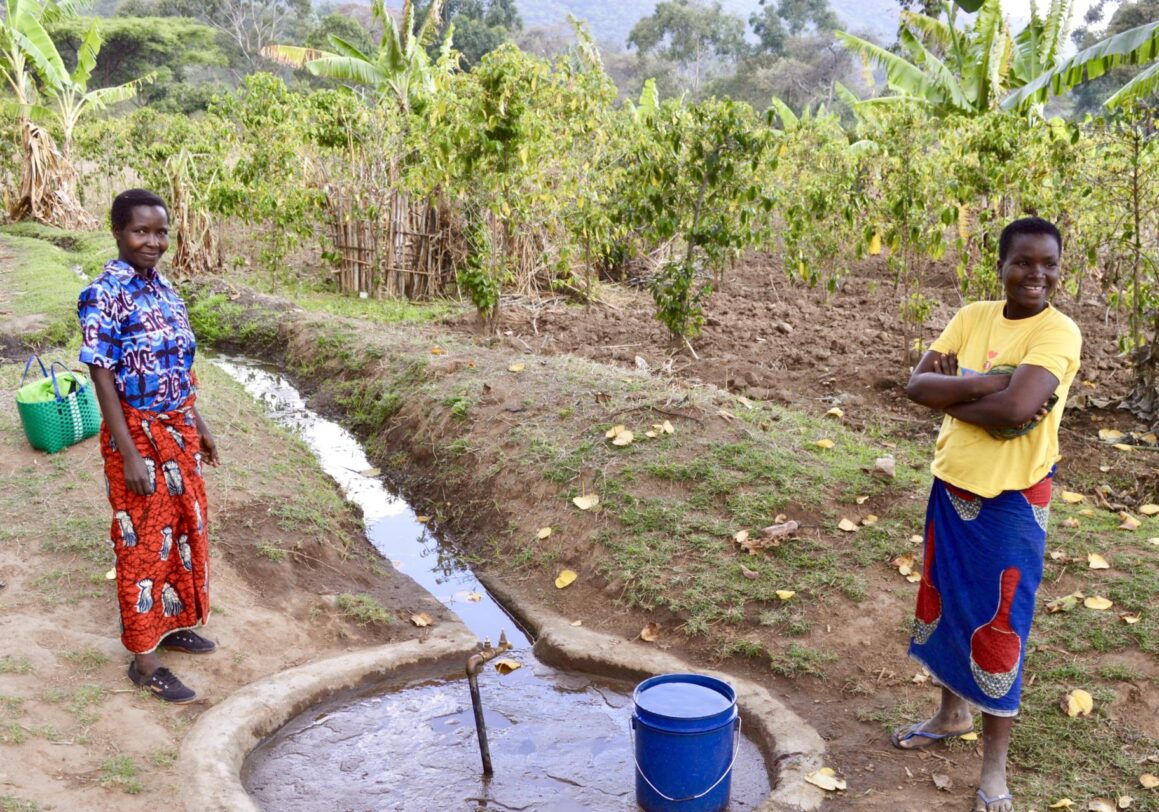
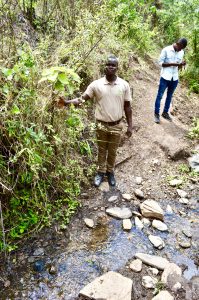
The community of Idugumbi in rural Mbeya, Tanzania had faced the challenges of declining coffee yields due to the growing scarcity of water for a long time. The only available water source that was shared by 4 villages: Idugumbi, Ihombe, Iwala and Utengule, was not enough to accommodate the growing water demand, especially in the harvesting season. This did not only affect their farming and the coffee processing but also their everyday lives as carrying water from far away posed a significant risk. Often, women and children carrying water for long distances are exposed to hazardous conditions, are assaulted or get injured.
In 2015, HRNS on behalf of the initiative for coffee&climate, supported the Idugumbi village to connect a natural water intake in the mountains of the district with their villages. Throughout the project the members of the community showed exceptional engagement and developed a strong sense of ownership. They established a Village Water Committee to coordinate and oversee the activities. Besides contributing with manpower and local materials, the community members covered 25% of the overall project costs. They are also responsible for the maintenance of the installation and for supervising the water usage. The collaboration of all involved resulted in eight new water taps for the village including a water access for the primary school.
Four years have passed since connecting the water intake with the village. Enough reason to pay a visit with my good colleague Baraka from our Mbeya office to Idugumbi and inspect how the water infrastructure has held up since and if it has improved the community’s lives.
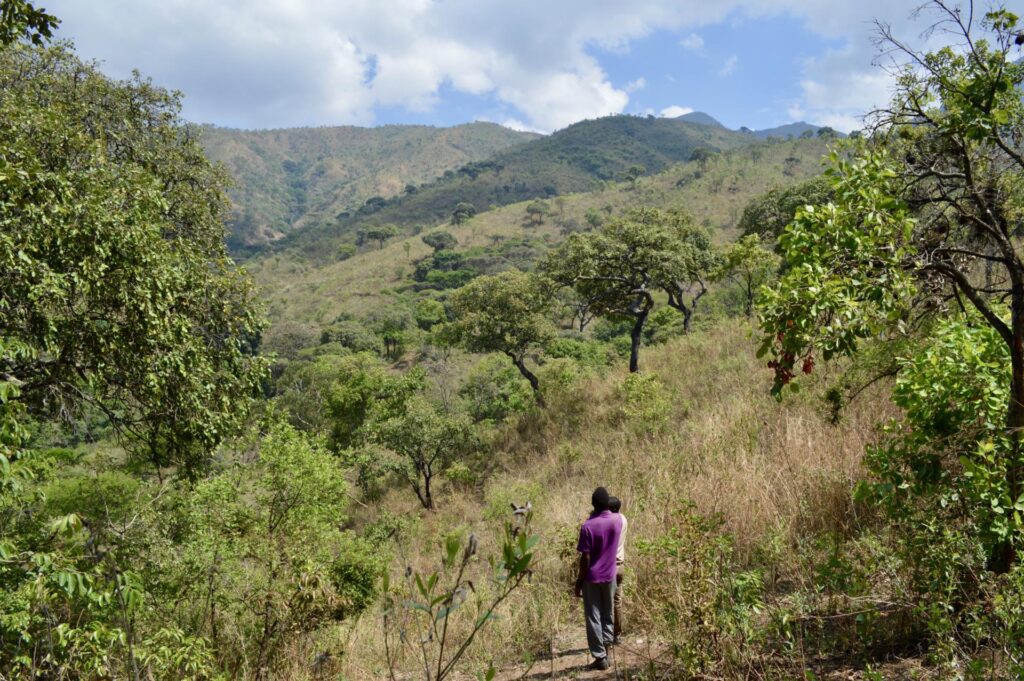
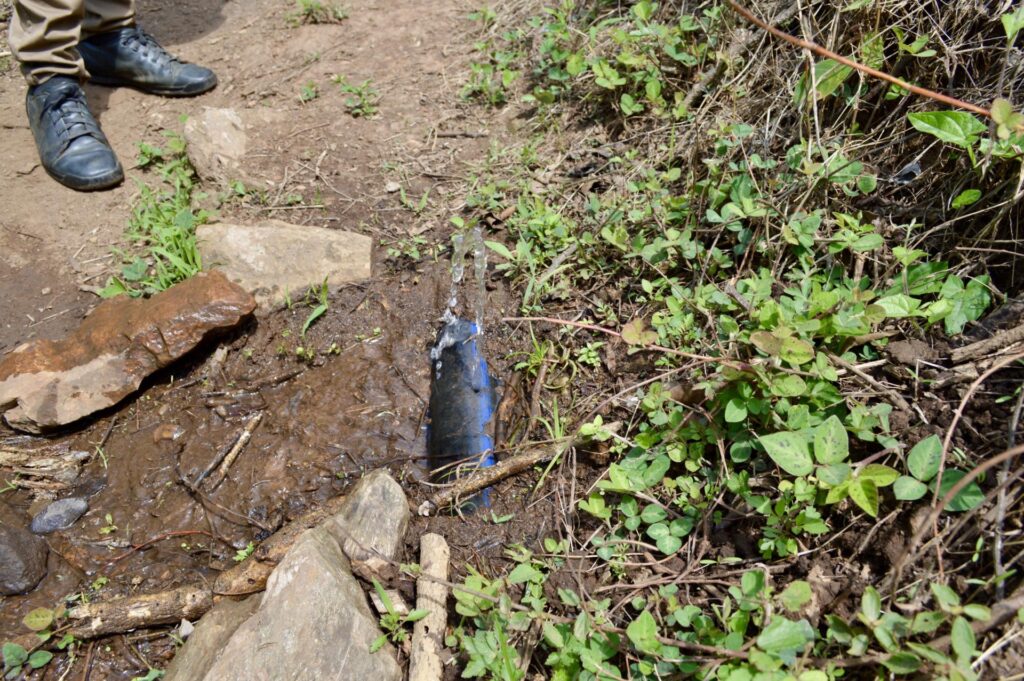
Walking up the hill towards the intake, there were no roads, buildings, fences nor other signs of civilization which was rather deliberating considering the buzz and stress of central Mbeya. Only the water pipes black surface which occasionally revealed itself presented a contrast to the otherwise untouched nature while also ensuring us that we were on track towards the water intake.
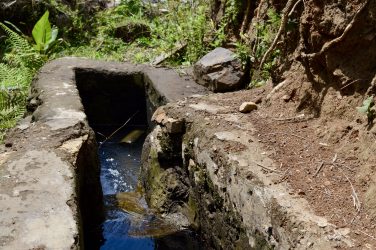
On a piece of exposed pipe, Baraka halted and lifted a heavy rock off the pipe which revealed a hole underneath that burst out water straight into the air. “This is used to measure the water pressure”, he told me while hauling the rock back into the previous position. Arriving at the intake I saw a small free-flowing river ending in two large water chambers building up water pressure which than led into the 3.5 km long and 3-inch-wide polyethylene pipe leading all the way down to the village. Baraka told me that trees around the small river protect the soil from erosion. Plantation of 800 trees of this kind have been financed by HRNS for this specific purpose in Idugumbi.
I had my fair share of troubles with the steep and rough path down the hill towards the village, being glad that I was not carrying water on top of my head. The coffee farmer, meanwhile, who assisted us for directions moved with ease in between trees and rocks to pick fruits which he handed me prompting to try some. Some of them I did appreciate, though eating others I forced myself to maintain a neutral face.
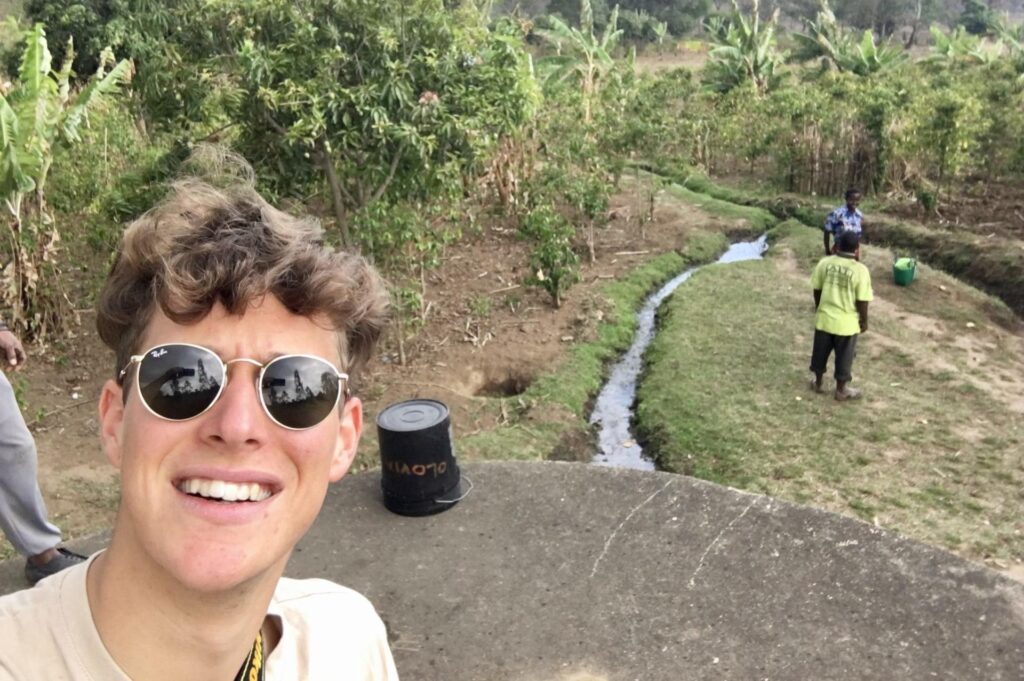
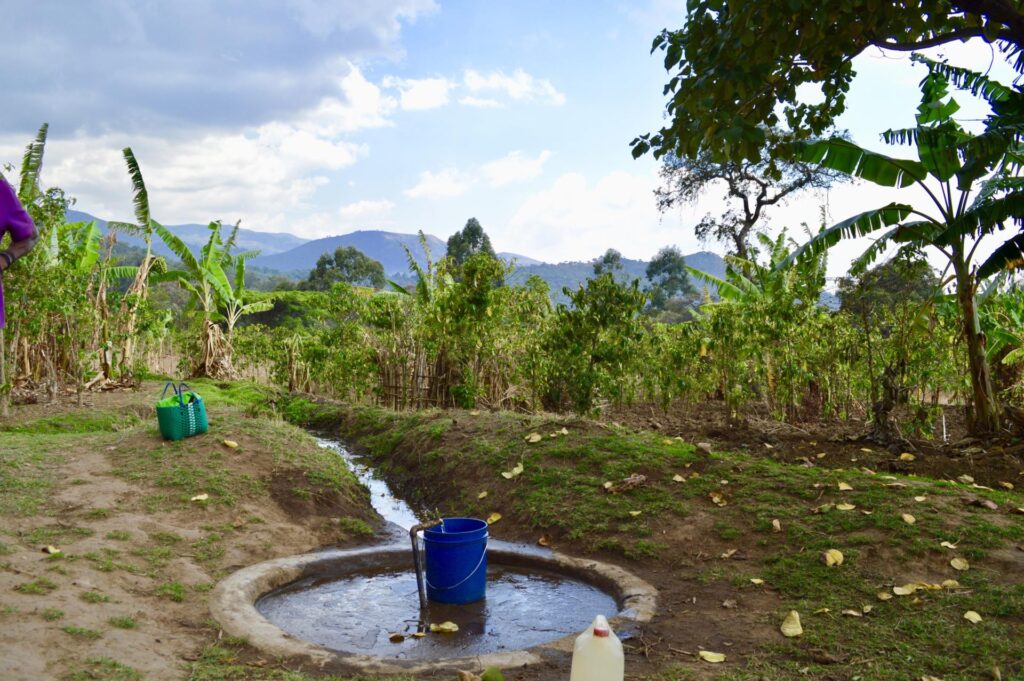
Down in the village we met female and male farmers who were just about to get their water.
Baraka explained: ”These water taps are a substantial improvement in the lives of more than 10.000 farmer households as it is time saving and less physically demanding. The time saved for carrying water can instead be used for other activities such as intercropping that diversify the household incomes. This also improves stress-resistance to outside factors such as food insecurity and climate change.”
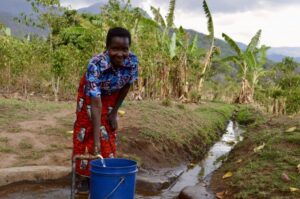
Rafael Mwakalenga, a member of the Idugumbi community remembers the times when water used to be rare: “I almost stopped farming because I thought I was going nowhere. In fact, I wanted to go and look for a security guard position in the city”. Now with the water pipeline in place, he tripled his coffee production. Rafael has also increased the number of coffee trees from less than 500 to 1100 trees now. “With the availability of water life is now meaningful here”, he says. “Now there is plenty of water for domestic use like drinking, cooking and washing of dishes and clothes.” In addition, the availability of clean water has also improved sanitation conditions i.e. hand-washing and latrine cleaning
Lifting the camera, one of the women immediately placed her right hand upon the water tap, releasing some water. I noticed how proud she felt for something that most of us usually take for granted.
Contributed by HRNS-staff Johannes Thoma.
